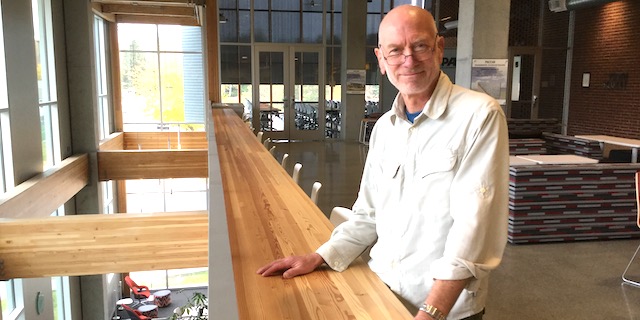WSU emeritus professor: ‘Deep worry’ amid researcher firings, budget cuts
Published 7:04 am Friday, April 11, 2025

- Washington State University emeritus professor and geologist Kent Keller says there is “deep worry” among researchers amid USDA hirings, firings and budget cuts. (Courtesy Washington State University)
PULLMAN, Wash. — Washington State University’s research community has “deep worry” amid mass federal staff firings and rehirings and state and federal budget cuts, an emeritus professor and geologist says.
Kent Keller began working at WSU as a soil and water researcher in 1988. His tenure includes five years as director of the School of the Environment.
He retired a little over a year ago, but continues to be involved in research through the university and USDA Agricultural Research Service.
“Being retired, I am a little bit more free to speak about things than other folks,” he told the Capital Press.
Researchers at WSU and USDA have a long, “exemplary” history of working together.
“It’s like hand in glove,” Keller said. “I can’t say enough about the worth of these federal-university relationships.”
One “very promising” USDA postdoctoral student was part of the slew of USDA researcher firings nationwide in February, led by Elon Musk and the U.S. Department of Government Efficiency, within 24 hours of arriving in the WSU area.
The student was fired five minutes before meeting Keller, he said.
The student left the area within a week to regroup and determine next steps. The student has since been reinstated into probationary status and moved back to the Palouse, Keller said.
“I think people are not confident about how long that’s going to last,” Keller said of the rehirings.
“We have been remarkably fortunate, and it speaks to the strength and promise of the work going on here to be able to get a young scientist of this caliber to go through this experience and come back to join us,” he added.
Budget cuts
With state and federal revenues tightening, WSU leadership is asking units to prepare budget proposals for the 2026 fiscal year that reflect possible reductions of 1%, 3%, 5% and 10%. Units will present those budget scenarios from April 21 to May 2.
The university cited declining reserves due to lower student enrollment during and after the COVID-19 pandemic. Total student enrollment has dropped from 31,607 in the fall of 2019 to 25,685 in the fall of 2024, the university stated in an April 3 news release.
“WSU will not implement blanket cuts,” the release states. “We will prioritize reductions and investments that support areas most critical to our continuing mission. That means that while reductions to core budgets are expected, funding — both one-time and recurring — will remain available for high-priority initiatives that support long-term success.”
Elizabeth “Betsy” Cantwell began as WSU president March 31.
In Keller’s 35 years at WSU, being asked to prepare for different possible budget cuts is not unusual, but it’s the first request for a 10% cut, he believes.
“Five percent is a lot; 10% is massive and would be very difficult,” Keller said. “I know everyone involved, starting with the new president, is going to be doing everything they can to try to make that not happen. But we might well have to deal with a budget cut of 5%, which would be very difficult to absorb.”
That would mean no new staff or faculty positions approved “for sure,” Keller said. The concern would be that existing searches would be suspended.
“Just the combination of those two things is a great cost to the academic endeavor,” he said.
It tends to immediately impact research units that need faculty for prospective growth or because they have employees retiring who need to be replaced, he said.
“That is demoralizing,” Keller said. “You run the risk of people saying, ‘I’ve got options to move, I’m a productive scholar/scientist,’ for example. Maybe I should go elsewhere.”
Is there work elsewhere?
“Of course, these kinds of things are happening across the country, as far as I know,” Keller said. “The answer may well be, ‘Not as much as there would have been in a previous episode like this.’”
‘Beyond disturbing’
The Trump administration has made moves nationwide to cut climate research funding.
“The placing of the terms ‘climate’ and ‘climate change’ and related topics as out of bounds for ongoing and further research development is beyond disturbing to me,” Keller said. “It is profoundly irresponsible, with respect to the interests of our children and their children. It is deeply offensive, more broadly, the concepts and words being declared out of bounds. I think personally it goes against cultural progress … I deeply regret seeing that work arbitrarily, summarily reversed.”






